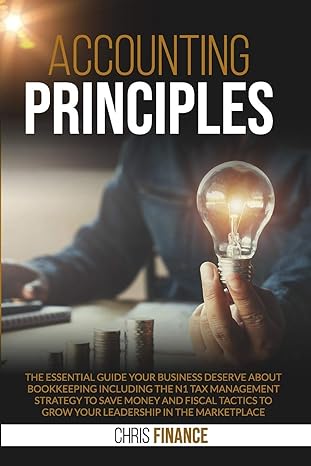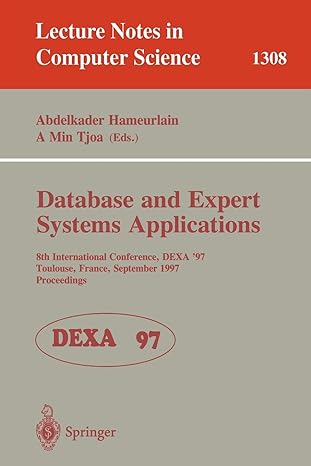Go back


Accounting Principles The Essential Guide Your Business Deserve About Bookeeping Including The N1 Tax Management Strategy To Save Money And Fiscal Tactics To Grow Your Leadership In The Marketplace(1st Edition)
Authors:
Chris Finance

Cover Type:Hardcover
Condition:Used
In Stock
Shipment time
Expected shipping within 2 DaysPopular items with books
Access to 30 Million+ solutions
Free ✝
Ask 50 Questions from expert
AI-Powered Answers
✝ 7 days-trial
Total Price:
$0
List Price: $4.18
Savings: $4.18(100%)
Solution Manual Includes
Access to 30 Million+ solutions
Ask 50 Questions from expert
AI-Powered Answers
24/7 Tutor Help
Detailed solutions for Accounting Principles The Essential Guide Your Business Deserve About Bookeeping Including The N1 Tax Management Strategy To Save Money And Fiscal Tactics To Grow Your Leadership In The Marketplace
Price:
$9.99
/month
Book details
ISBN: 979-8649287289
Book publisher: Independently published (May 28, 2020)
Get your hands on the best-selling book Accounting Principles The Essential Guide Your Business Deserve About Bookeeping Including The N1 Tax Management Strategy To Save Money And Fiscal Tactics To Grow Your Leadership In The Marketplace 1st Edition for free. Feed your curiosity and let your imagination soar with the best stories coming out to you without hefty price tags. Browse SolutionInn to discover a treasure trove of fiction and non-fiction books where every page leads the reader to an undiscovered world. Start your literary adventure right away and also enjoy free shipping of these complimentary books to your door.
Book Summary: Do you want to know what your business deserve to save money and the effective fiscal tactics to grow your leadership in the marketplace?If yes, then keep reading…Accounting principles are those regulations set as they are needed to create more cohesive accounting techniques. Regulations generally build over time. As regulators find the need for new accounting principles to be implemented, they are introduced. However, as the need for regulations determines which regulations are put into place, not all accounting principles are the same. The principles of accounting discussed in this book will be the generally accepted accounting principles (GAAP) of the United States. While this book may teach the fundamentals of accounting, you’ll want to learn the rules and regulations in other countries before conducting business there. Even though there is an International Accounting Standards Board (IASB) that exists at the global level, there is not yet a set of accounting principles accepted worldwide. In the United States, you’ll find that there are three elements of accounting principles. The first is the basic rules and guidelines. By understanding these basic principles, you can have a scope of what is expected when reporting financials. The second part of accounting principles is general industry practices, which are the way that the accounting guidelines should be applied to real accounting practices. Finally, consideration must be given to the detailed rules that have been issued by authorities including the Accounting Principles Board (APB) and Financial Accounting Standards Board (FASB).This book covers the following topics:7- relationship between revenues and expensesDetecting and preventing fraudThe n1 tax management strategy to save moneyDifferent types of accounting principlesThe cost principlesRevenue recognition principleThe time period principleApplying the principles of accounting to the accounting cycleApplying what you’ve learned to accounting ratiosCash flow, functions and working capital for effective accountingThe difference between principles and rulesKey financial statementsCommon terms used in accounting…And much more!In the world of finance, the call-to-action in creating a standard for accounting is considered one of the major markers of the 20th century. Many organizations, individuals, and committees developed over time in an effort to create an authoritative basis for accounting. However, many of these rules, standards, principles, concepts, conventions, and guidelines failed, simply because they did not capture the full conceptual framework for what organizations were trying to achieve by developing a set of standards. As organizations and individuals continued in their efforts, two distinct schools of thought evolved regarding the field of accounting. The first school of thought held the core belief that accounting principles did not require a systematic theoretical foundation. Many believed that the principles should be learned through practice, even though this could have serious consequences and would make it harder for new accountants to practice proper accounting. This school of thought also supported the idea with a few basic guidelines, accountants would be able to solve any problem they encountered during accounting practice.Do you want to learn more? Don’t wait anymore, press the buy now button and get started!.
Customers also bought these books
Frequently Bought Together
Top Reviews for Books
Keith lebanowski
( 4 )
"Delivery was considerably fast, and the book I received was in a good condition."










